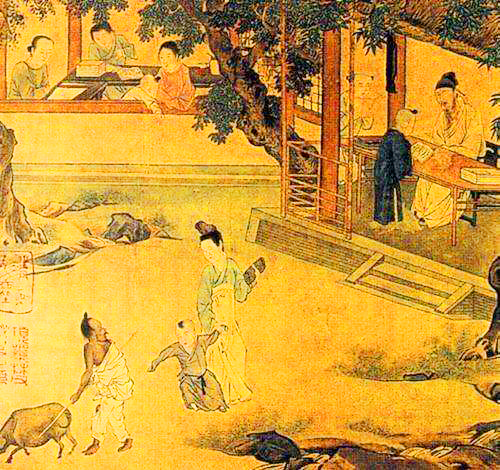Family

家必自毁,而后人毁之
A family can only be destroyed if it destroys itself.
Mencius said these words to demonstrate the importance of family virtue. The collapse of family virtue results in chaos among family members, which renders the group vulnerable to external threats.
家家有本难念的经
Every household has a difficult scripture to read.
This proverb expresses a similar meaning as the English saying that every family has a skeleton in the closet. Or as Leo Tolstoy wrote in Anna Karenina: “All happy families resemble one another; each unhappy family is unhappy in its own way.”
家无营活计,不怕斗量金
If a family has no long-term plan for making a living, even bushels of gold won’t help.
This proverb is usually quoted to express the importance of long-term planning for a family.
家有常业,虽饥不饿;国有常法,虽危不乱
The family that has a definite occupation does not have to starve in times of famine; the state that has definite laws does not go to ruin in case of emergency.
This proverb originates from Han Fei Tzu, by Han Fei, a Chinese philosopher of the Legalist School in the Warring States Period (475-221 BCE). The proverb suggests that families with training in a particular skill can persevere through difficult times, and that states with stable laws can do the same.
家有敝帚,享之千金
The worn-out broom in one’s own household is worth a thousand ounces of gold.
This saying originates from Dian Lun by Cao Pi (187-226), the first emperor of the Wei Dynasty (220-266) and the son of the actual nation’s founder Cao Cao. Cao Pi was also famous for his literary achievements and the Dian Lun is his master work of literary criticism. Cao Pi used this proverb to say that even if one’s literary work might be looked down upon by other critics, one always inclines to cherish their own works. This proverb is now used to mean that one can cherish their own belongings, even if they are a bit shabby. And the saying bizhou, or “worn-out broom” is also now quoted to describe one’s own works in a modest and self-effacing way.
